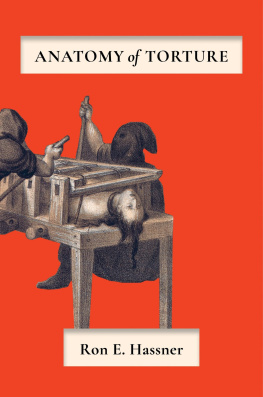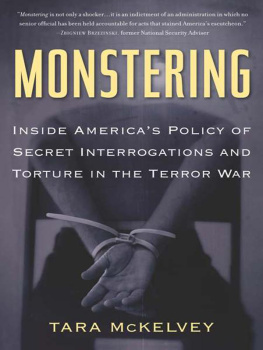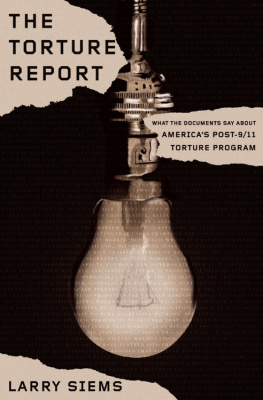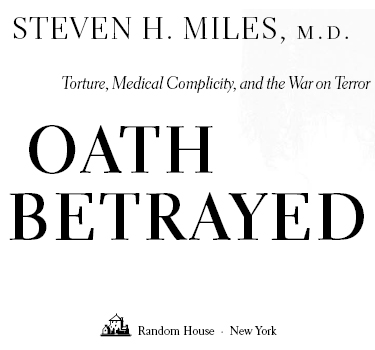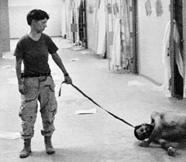Steven Miles - Oath Betrayed: Torture, Medical Complicity, and the War on Terror
Here you can read online Steven Miles - Oath Betrayed: Torture, Medical Complicity, and the War on Terror full text of the book (entire story) in english for free. Download pdf and epub, get meaning, cover and reviews about this ebook. year: 2006, publisher: Random House Publishing Group, genre: Politics. Description of the work, (preface) as well as reviews are available. Best literature library LitArk.com created for fans of good reading and offers a wide selection of genres:
Romance novel
Science fiction
Adventure
Detective
Science
History
Home and family
Prose
Art
Politics
Computer
Non-fiction
Religion
Business
Children
Humor
Choose a favorite category and find really read worthwhile books. Enjoy immersion in the world of imagination, feel the emotions of the characters or learn something new for yourself, make an fascinating discovery.

- Book:Oath Betrayed: Torture, Medical Complicity, and the War on Terror
- Author:
- Publisher:Random House Publishing Group
- Genre:
- Year:2006
- Rating:5 / 5
- Favourites:Add to favourites
- Your mark:
Oath Betrayed: Torture, Medical Complicity, and the War on Terror: summary, description and annotation
We offer to read an annotation, description, summary or preface (depends on what the author of the book "Oath Betrayed: Torture, Medical Complicity, and the War on Terror" wrote himself). If you haven't found the necessary information about the book — write in the comments, we will try to find it.
If law be the bedrock of civil society, it can no more undergird torture than it could support slavery or genocide.
--from the Introduction
The graphic photographs of U.S. military personnel grinning over abused Arab and Muslim prisoners shocked the world community. That the United States was systematically torturing inmates at prisons run by its military and civilian leaders divided the nation and brought deep shame to many. When Steven H. Miles, an expert in medical ethics and an advocate for human rights, learned of the neglect, mistreatment, and torture of prisoners at Abu Ghraib, Guantnamo Bay, and elsewhere, one of his first thoughts was: Where were the prison doctors while the abuses were taking place?
In Oath Betrayed, Miles explains the answer to this question. Not only were doctors, nurses, and medics silent while prisoners were abused; physicians and psychologists provided information that helped determine how much and what kind of mistreatment could be delivered to detainees during interrogation. Additionally, these harsh examinations were monitored by health professionals operating under the purview of the U.S. military.
Miles has based this book on meticulous research and a wealth of resources, including unprecedented eyewitness accounts from actual victims of prison abuse, and more than thirty-five thousand pages of documentation acquired through provisions of the Freedom of Information Act: army criminal investigations, FBI notes on debriefings of prisoners, autopsy reports, and prisoners medical records. These documents tell a story markedly different from the official version of the truth, revealing involvement at every level of government, from Secretary of Defense Donald Rumsfeld to the Pentagons senior health officials to prison health-care personnel.
Oath Betrayed is not a denunciation of American military policy or of war in general, but of a profound betrayal of traditions that have shaped the medical corps of the United States armed forces and of Americas abdication of its leadership role in international human rights. This book is a vital document that will both open minds and reinvigorate Americans understanding of why human rights matter, so that we can reaffirm and fortify the rules for international civil society.
This, quite simply, is the most devastating and detailed investigation into a question that has remained a no-no in the current debate on American torture in George Bushs war on terror: the role of military physicians, nurses, and other medical personnel. Dr. Miles writes in a white rage, with great justification--but he lets the facts tell the story.
--Seymour M. Hersh, author of Chain of Command
Steven Miles has written exactly the book we require on medical complicity in torture. His admirable combination of scholarship and moral passion does great service to the medical profession and to our country.
--Robert Jay Lifton, M.D., author of The Nazi Doctors: Medical Killingand the Psychology of Genocide, and co-editor of Crimes of War: Iraq
From the Hardcover edition.
Steven Miles: author's other books
Who wrote Oath Betrayed: Torture, Medical Complicity, and the War on Terror? Find out the surname, the name of the author of the book and a list of all author's works by series.


